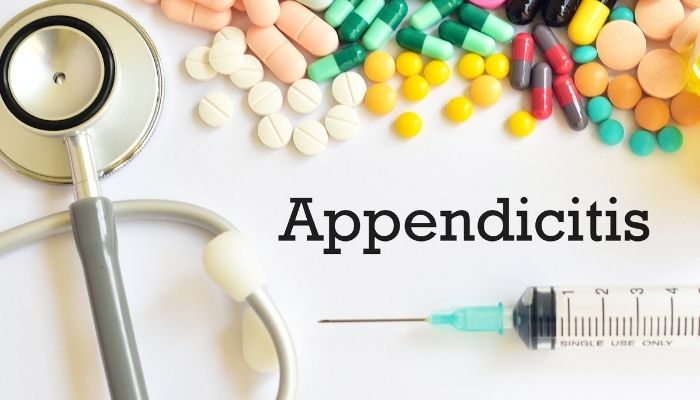Appendicitis is an inflammation of the appendix, a tiny pouch attached to the large intestine. Though this organ is not very relevant, appendicitis may cause some severe inflammation if not treated properly. The appendicitis tests are a group of tests that are recommended for people who are having appendicitis symptoms. These tests help your doctor to diagnose appendicitis before it creates some serious complications.

The costs of the appendicitis tests are Rs.500 to Rs.2500, depending on your location and place. Please check the price of the appendicitis test in Delhi/NCR, your nearby centers and other details.
Test Summary of Appendicitis Test
| Also known as | Appendicitis test |
| Test Type | Blood, urine, imaging |
| Antibiotic sensitivity test includes | To check whether you have the symptoms of appendicitis |
| Preparation | You may not need any special preparations. For imaging tests, you may need to do fasting |
| Reporting | Within 24 hours |
| Test price | The costs of the appendicitis tests are Rs.500 to Rs.2500, depending on your location and place. |
| Also included in | Health Insurance Plans |
| Related tests | Ultrasound, CT scan |
What Are the Symptoms of Appendicitis?
- Extreme abdominal pain in the lower right belly where the appendix is situated
- Abdominal pain hurts when you cough, sneeze, inhale or move
- Inflamed belly
- Constipation
- Diarrhea
- Can’t pass gas
- Loss of appetite
- Low-grade fever (below 100 degrees F)
- Nausea and vomiting
Purpose of Appendicitis Test?
Your doctor may refer to this test if you have symptoms of appendicitis. The most prominent symptom of appendicitis is the pain in the lower abdomen. The pain initiates by your belly button and migrates to your lower right abdomen.Preparation of Appendicitis Test
This test doesn’t demand any special preparations. But for an abdominal ultrasound or CT scan, you may need to do fasting for several hours before the test.Procedure of Appendicitis Test
Appendicitis tests are done by a physical examination of your abdomen by an expert. The below-mentioned tests are also conducted.Blood Test for Appendicitis
Blood tests are done to check the signs of infection. If you have a high white blood cell count, then this could be a sign of an infection, but it is not restricted to appendicitis.Urine Test
A urine test is done to rule out a urinary tract infection.Imaging Tests
Your doctor will suggest an ultrasound or CT scan to get the pictures of your inside abdomen. Imaging tests confirm a diagnosis if a physical exam or blood test can’t confirm appendicitis.During a Blood Test
Your blood sample will be collected from a vein in your arm with the help of a nurse or lab technician. The person will insert a needle to collect a small amount of blood. Once the blood is collected, it will be stored in a test tube or vial. You may feel a sharp pain when the needle goes in or out. The entire process takes 5-10 minutes.For a Urine Test
You need to provide a sterile sample from the given container by the lab. You must follow the below-mentioned steps.- First, wash your hands properly
- By using a cleansing pad, you need to clean your genital area
- Start to urinate on the toilet
- Take the collection container under your urine stream
- Collect at least an ounce or two of urine into the container
- Finish urinating on the toilet
- Finally, return the container to the lab
An Abdominal Ultrasound
This type of test uses a wave to view the inside of your abdomen. During the test procedure- You need to lie on an exam table
- A special gel will be applied to your skin over the abdomen
- A handheld probe (a transducer) will be moved over the abdomen to get the inside view of your abdomen
CT Scan
This test is linked to an x-ray machine to create an array of pictures of the inside of your body. Before the test, you may need to take a substance called contrast dye. Contrast dye offers the best images in the x-ray. You may get contrast dye through an intravenous line or by drinking it.During the Scan
- You need to lie on a table that slides into the CT scanner
- The scanner's beam will rotate around you and will take your inside pictures at various angles
- The scanner will offer three-dimensional images of your appendix
The Test Results
If you are having the symptoms of appendicitis, you will have a higher white cell count. For further confirmation, your doctor may refer to abdominal ultrasound and/or a CT scan.If appendicitis is confirmed, the surgery is the best option to remove the appendix. This surgery is called appendectomy where your appendix is removed.
If surgery is performed after the appendix bursts, then the recovery process could be longer. Your doctor may prescribe some antibiotics to prevent infection. Your antibiotics course will be longer if your appendix bursts before surgery. Without an appendix, you may lead a wholesome life.


